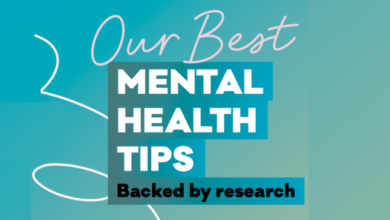Migraine, more headache of women!

men get migraines But three times less than women i.e. 15 Only one of the men. Now the question is that migraine, How different from common headache? so the answer is, If one side hammers in the head, bomb blast, If there is a constant tingle or pulsating headache, then understand that it is a migraine. It messes up the sensory system, Due to which the eyes-ears-hands-feet are not able to work properly. Nausea with some headache Vomiting, trouble speaking, Symptoms like numbness and tingling are felt. The intensity keeps on changing i.e. sometimes strong and sometimes mild.
Migraine, such a headache which is in the grip of every fifth woman in the world today. This does not mean that men do not get migraines. Occurs, but three times less often than women, ie only one in 15 men. Now the question is, how is migraine different from common headache? So the answer is, if there is a headache like hammering, bomb blast, constant tees or pulsating on one side of the head, then understand that it is a migraine. This spoils the sensory system, due to which the eyes-ears-hands-feet do not function properly. Some experience symptoms such as nausea, vomiting, slurred speech, numbness, and tingling along with a headache. The intensity keeps on changing i.e. sometimes strong and sometimes mild. Lasts for several days and occurs at any age.
How many stages of migraine?
Two days before the onset of migraine i.e. in the prodrome stage, its signs start appearing. Such as hyper-sensitivity to light and sound, irritability, mood swings, frequent yawning, food cravings, fluid retention, constipation, frequent urination, depression, fatigue and stiff neck.
Migraine with aura begins after the prodrome. It is characterized by strange symptoms such as temporary blurred vision, difficulty in speaking, tingling in the face and hands and feet, seeing flashing lights or different shapes and blind spots.
This is followed by a migraine attack. Which can be mild or severe, acute or chronic, anything. If it is less than 15 days then it is acute and more than 15 days then it is chronic.
After the attack, the patient goes through the postdrome phase, in which there is a mild headache accompanied by mood swings, sometimes feeling happy, sometimes sad and sometimes tired. It is not necessary that the patient goes through all the three stages, some feel only the last stage.
duration and intensity
Remember that the duration and intensity of migraines varies from person to person, they also feel headaches differently such as pulsating, throbbing, perforating, and pounding. . In this, the head hurts the most, sometimes on the right side and sometimes on the left side. In most cases it lasts from four hours to 72 hours to two weeks if left untreated. Many of its patients feel symptoms like migraine nausea i.e. nausea and vomiting for an hour after the headache starts. For some, the headache gets worse when walking or climbing stairs.
vestibular migraine
About 40 percent of patients suffer from vestibular migraine. Dizziness occurs with loss of balance. It is usually triggered by dehydration, skipping meals and consuming certain foods. It can be easily managed by changing the diet and lifestyle.
optical migraine
When the effect of migraine is on the eyes, then understand that it is optical migraine, it is also called retinal migraine. In this the vision of one eye is affected. Symptoms such as flashes in the eyes, blind spots, partial vision or vision loss are felt within an hour of the onset of the headache. But it is reversible. The main reason for optical migraine is excessive physical activities or exercises.
mensural migraine
The migraine that women are most troubled by is mensural migraine. This can happen anytime before, after, or during ovulation. In this, there is a feeling of severe headache, dizziness, as well as it lasts for a long time. And it remains so until the hormonal balance and serotonin levels in the body are restored.
Why does migraine happen?
These were the symptoms of migraine. Now the question is why does migraine happen? So till now no definite reason has been known for this, but the triggering factors have definitely been identified. Scientists believe that migraines arise due to the lack of serotonin hormones that control the brain.
Apart from this, factors like dehydration, skipping meals, hormonal changes, bright light, loud noise, stress, extreme weather, change in barometric pressure, excessive exercise, sexual activities, disturbed sleep cycle, smoking and alcohol trigger migraine. Research has shown that caffeine, food additives such as nitrates, artificial sugar, MSG and natural tyramine rich foods are also migraine triggers.
What is the treatment of migraine?
Self-care, stress management, dietary changes, lifestyle modifications, hormone therapy, acupuncture, acupressure, and medications play an important role in the treatment of migraine. In a research conducted in 2012, it was found that it is possible to treat migraine nausea with acupuncture. If treatment with acupuncture is done within thirty minutes of the onset of nausea, then the relief lasts for a long time.
In case of migraine attack, lie down quietly in a dark room and massage the head and forehead. Place a cool cloth over the head and under the neck. To relieve pain, apply a small amount of lavender or peppermint oil to the forehead. Increase the quantity of ginger in food for relief in migraine nozia. Women suffering from menstrual migraine should include magnesium-rich foods in their diet such as pulses, kidney beans, gram, soybean, almonds, cashews, bananas, spinach, mustard, flax seeds, pumpkin seeds, and fish, etc.
How to avoid migraine?
To avoid migraine, avoid those conditions which trigger migraine. Must drink at least 3 liters of water a day. Don’t skip meals. If migraine is triggered by curd, cabbage or brinjal etc., avoid them. Have a good sleep Stay away from smoking and alcohol. If there is obesity then reduce the weight. Listen to your favorite music to stay stress free. Make regular yoga, deep breathing, meditation and light exercises a part of your lifestyle.
Remember, there is no permanent cure for migraine, but treatment can reduce its severity and frequency. That’s why follow the treatment plan prescribed by the doctor. Vision loss, difficulty in speaking, weakness in hands and feet or face drooping on one side, then go to the doctor immediately because these symptoms are also of stroke. Never take headache medicines on your own. In mild headache, instead of taking medicine immediately, wait for some time, maybe it will get cured by itself in 15-20 minutes. Do not take overdose of medicine in severe headache as pain killer medicines have serious side effects.






